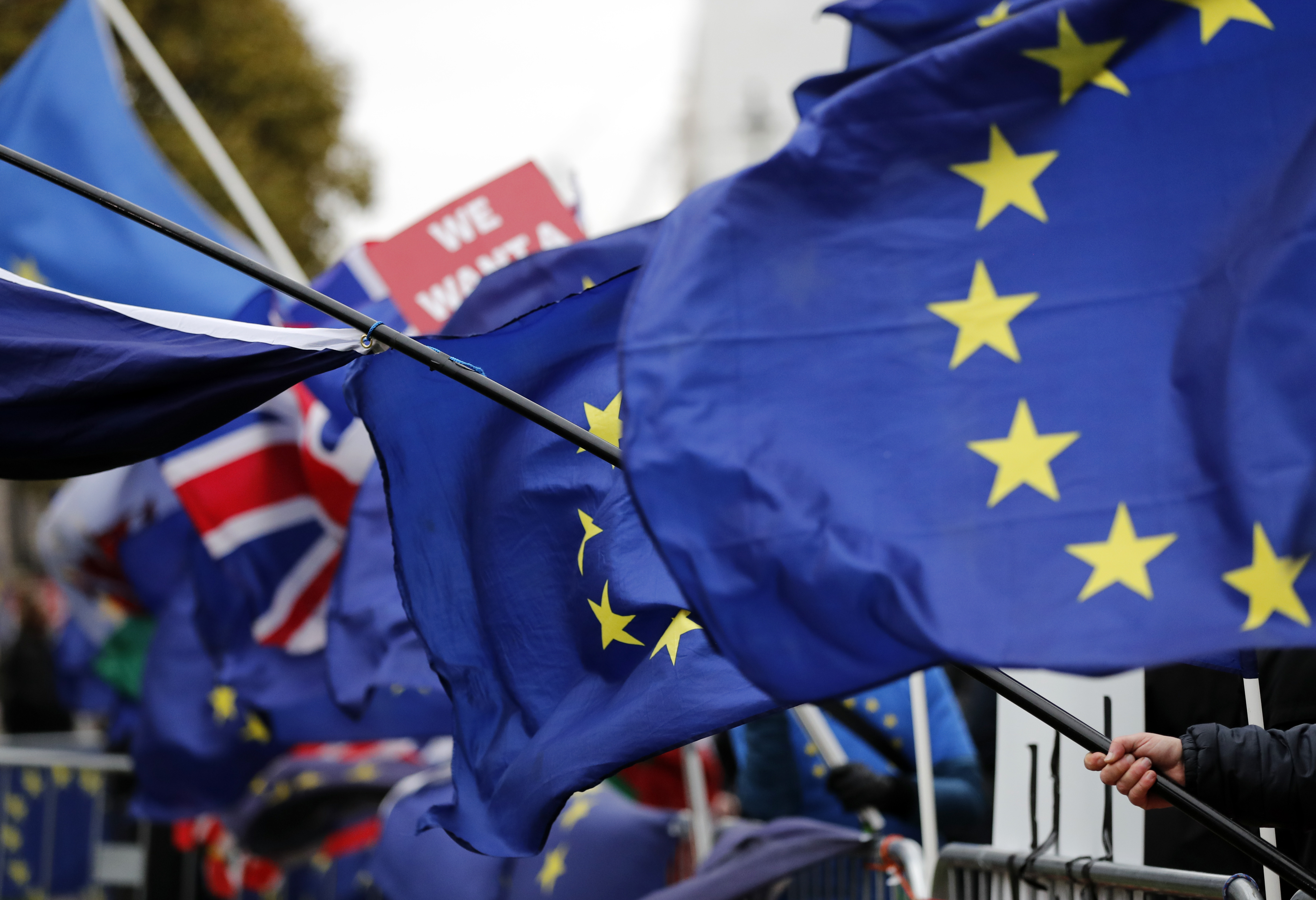Brexit
With ‘No deal’ ruled out, Brexit can be averted

Nach mehreren Wahldurchgängen im britischen Parlament letzte Woche ist klar: das Vereinigte Königreich wird nicht am 29. März aus der Europäischen Union austreten
© picture alliance/AP PhotoSir Graham Watson was an MEP from 1994 to 2014. He led the European Parliament’s Liberal Group from 2002 to 2009 and presided the ALDE Party from 2001 to 2015. He currently serves as a Member of the European Economic and Social Committee.
At around one o’clock in the morning on 24 June 2016, soon after the polls had closed, a leading figure in the UK’s Remain campaign opened a drinks reception with the words ‘Well done, everybody; it looks like we’ve won’. True, the result from Gibraltar – the first result to be declared – was that 96% had voted to remain. True, UKIP MEP Nigel Farage had conceded defeat. But I was next up at the microphone at that reception. And I felt I had to warn that celebration was premature, to say the least. The result might not be as most people expected.
I took no pleasure in playing Cassandra, particularly not in this matter. But from the privileged position of being a Member of the European Parliament for a large rural constituency for the twenty years from 1994 to 2014, I had fought, with concern tinged ever more by anxiety, against a seemingly unstoppable tide of anti-EU propaganda. And I had predicted – the moment David Cameron announced a referendum – that the UK would vote against continued EU membership. My prediction met with derision from most people I spoke to.
It may be that finally, now, the prediction ‘We’ve won’ will come true.
If there is a silver lining to the dark thunderclouds which have amassed ominously over the UK since the referendum, it is surely that some of those who voted to leave have begun to question their action. And many of those who voted remain have become impressively active proponents of continued UK membership. Opinion polls suggest that a re-run of the referendum would produce a different outcome.
Theresa May will face a vote of no confidence after MPs rejected her Brexit agreement by a crushing 230 majority on Tuesday night (15 January).
The UK public is not well educated about the EU. An unholy alliance of forces, from North American neocons to Kremlin-backed disrupters, has provided the resources to spread very effectively a plethora of fake news. Moreover the UK has been let down, more than by any other source, by an institution many had previously much respected: its own public service broadcaster, the BBC. Its political class is guilty of having ignored the danger signals; and of allowing evil to triumph by giving free rein to the institutionalised mob rule to which decision-making by referendum is always vulnerable.
The desolation of defeat is a better teacher than the vanity of victory. The United Kingdom is learning many lessons. Not least among them is the downside to the mobility of capital and labour which the UK until recently favoured. Far from being swamped by new arrivals, a big danger to UK living standards now consists of an exodus. Brexit has already cost the UK tens of billions of pounds.
I venture to predict, after the House of Commons vote, that Brexit will be averted. A combination of poor British political leadership, increasing evidence of the economic damage which it engenders and fear of the unknown, has persuaded a majority of UK MPs that Brexit must not happen. The leaders of both the major political parties have been determined it must go ahead. But the UK’s Parliament is reasserting its sovereignty and taking back control of the political agenda.
It is not yet clear how the UK’s Brexit plans will be consigned to the shredder. The terrain over which the country is moving is peppered with potential landmines. But it has been clear since late October that parliamentary opinion has crystallised against the course of action advised by the people by a wafer-thin majority some thirty months ago. And MPs have therefore rightly rejected the Prime Minister’s proposal. Getting from here to Remain is primarily a matter of marshalling the troops.
The votes in the House of Commons have shown what MPs will not stomach. ‘No deal’ is out. The Norway option appears to suffer the same disadvantages as the Agreement which they voted down. The votes point to a likely withdrawal of the UK’s Article 50 letter, or at least an attempt to persuade others to extend its timeline while this is still possible.
Time will be needed to decide what to do now. It seems to me most likely that the courage of the UK’s parliamentary paramedics will turn to concern to legitimise their action through a second People’s Vote. This could be timed to coincide with the local elections in May, perhaps allowing a slightly delayed election of UK Members of the European Parliament before the summer. There is no dearth of learned studies of how to coax down the British cat from its tree. But nor is there an undisputed leader who is showing the way and mobilising the resources to coax and cajole my compatriots along it.
The UK’s parliament fears the consequences of Brexit for the UK. The consequences for the EU-27, less serious but nonetheless damaging, have been either overlooked or downplayed by heads of state and government resigned to agreeing to the UK’s proposals and moving on. They should look more closely at the situation in Britain today.
My anxiety does not extend to predicting a disintegration of the UK if Brexit goes ahead; let alone a break-up of the EU. But either or both are sufficiently conceivable to suggest to the continent’s leaders that helping Theresa May achieve her goals should take second place to encouraging the people of the UK to change their collective mind.
British exceptionalism may turn out to be less than is often thought. France, the Netherlands, Denmark and Ireland have all lost referenda on issues of the EU’s development and yet have ended up going with the flow. The UK, despite its island history, is following its poet John Donne’s advice that ‘no man is an island, entire of itself; every man is a piece of the continent, a part of the main.’
Dieser Kommentar erschien zuvor bereits auf euractiv.com

Sir Graham Robert Watson
© OllieqqqSir Graham Watson ist Berater der Friedrich-Naumann-Stiftung für die Freiheit im Vereinigten Königreich. Er war von 1994 bis 2014 Mitglied des Europäischen Parlamentes und von 2001 bis 2015 Präsident der liberalen Europapartei ALDE.
